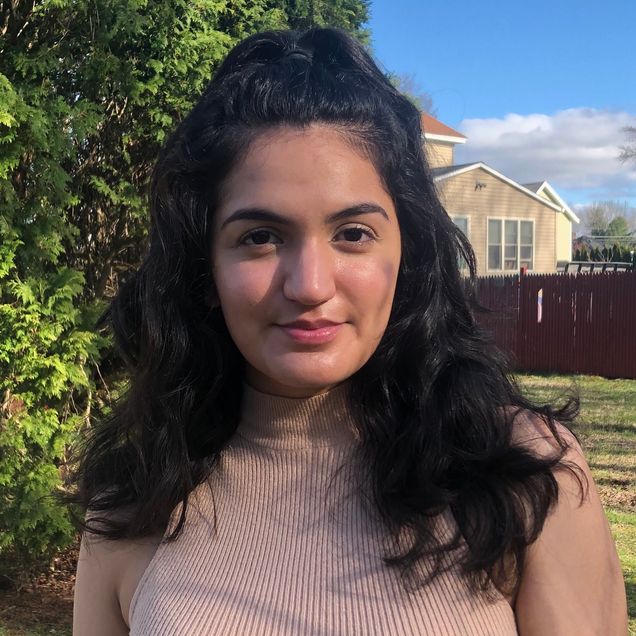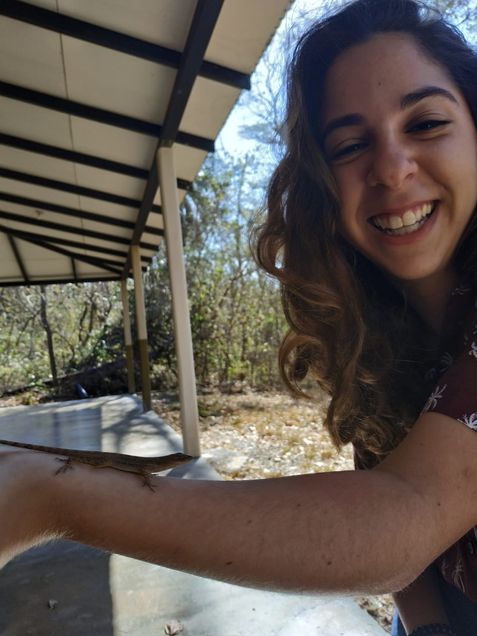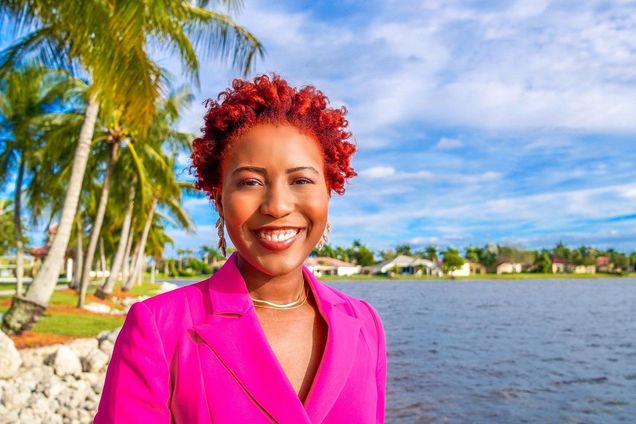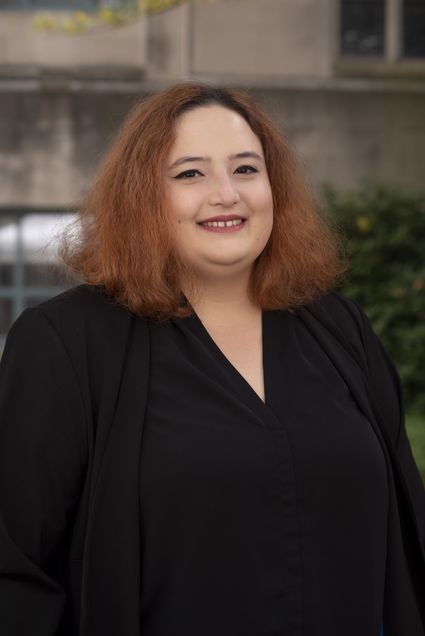BY MANDILE MPOFU (COM`24)
Graduate students in the social sciences are exploring topics including refugee integration, children’s health and development, and global supply chains, thanks to summer mini-grants from the Center for Innovation in Social Sciences (CISS).
Launched in 2021, CISS is an Arts & Sciences center that provides an intellectual home for social sciences faculty, postdoctoral fellows, and graduate and undergraduate students engaged in social science research across the BU campus CISS Director Deborah Carr, a professor of sociology, said the center received three times as many applicants for the program this year as it did in 2022, underscoring the apparent need for financial support of graduate student travel and research. Twelve graduate students were awarded summer mini-grants for the summer of 2023 — some traveling domestically to present their work at conferences, some traveling internationally to conduct research, and others staying on campus to advance their work.
“Taken together, the results of these projects can help identify potential interventions or policy solutions to promote the economic, physical, social, and psychological well-being of children and adults across diverse national contexts,” Carr said. “Our grantees are upholding BU’s mission of doing “‘research that matters.’”
Cat Abou-Khalil (GRS`26)
 Before migrating to the U.S. in search of a better life, Catherine Abou-Khalil’s mother grew up in Lebanon during a civil war and took refuge in Syria. This inspired Abou-Khalil, a fourth-year political science PhD candidate from Massachusetts, to work with immigrants and refugees who settle in the U.S. and to help them gain the same opportunities she has had.
Before migrating to the U.S. in search of a better life, Catherine Abou-Khalil’s mother grew up in Lebanon during a civil war and took refuge in Syria. This inspired Abou-Khalil, a fourth-year political science PhD candidate from Massachusetts, to work with immigrants and refugees who settle in the U.S. and to help them gain the same opportunities she has had.
While working with Burmese refugees at SayDaNar, a nonprofit organization in Lowell, Massachusetts, Abou-Khalil discovered her passion for studying the experiences of people who undergo forced migration and endure conflict.
“My approach to research is interdisciplinary and intersectional, centering identity and various methodological approaches, such as media analyses, to understand people’s experiences in vulnerable situations,” she said.
Thanks to the mini-grant, Abou-Khalil will travel to the 2023 American Political Science Association (APSA) Annual Meeting in Los Angeles. There, she will present her co-authored paper, “Can Pandora’s Box Be Closed? Information Access in Post-Coup Myanmar,” which analyzes interviews and surveys with people from Myanmar before and after the 2021 military coup to assess how they access and identify trustworthy sources during a time of political tension.
During her time at Boston University, Abou-Khalil has been mentored by professors across various faculties and academic disciplines, some of whom have contributed to the research she will present at APSA.
“I am so inspired by this group of successful and powerful women who remind me every day of my goals and what I aspire to reach in my career,” she said.
Zoe Albert (GRS`27)
 Zoe Albert’s research topic emerged from a stinky encounter. While she was working as a field assistant in Santa Rosa National Park in Guanacaste, Costa Rica, a capuchin monkey named Cicatriz pooped right on Albert’s head. For some, that mushy moment would’ve been a deterrent; but for Albert, an anthropology PhD student from Texas, it was a source of inspiration. She realized that she could use the poop to determine Cicatriz’s health and identify any genetic anomalies, among other things. This sparked within her a desire to understand the gut microbiome.
Zoe Albert’s research topic emerged from a stinky encounter. While she was working as a field assistant in Santa Rosa National Park in Guanacaste, Costa Rica, a capuchin monkey named Cicatriz pooped right on Albert’s head. For some, that mushy moment would’ve been a deterrent; but for Albert, an anthropology PhD student from Texas, it was a source of inspiration. She realized that she could use the poop to determine Cicatriz’s health and identify any genetic anomalies, among other things. This sparked within her a desire to understand the gut microbiome.
“When deciding upon what kinds of questions I would ask during my PhD research of orangutans, my mind kept wandering back to [that moment],” she said. “What is it that I could learn by studying the poop of our ape relatives, that I could not learn from observation alone?”
Albert received a CISS mini-grant in the summer of 2022, which she used to travel to the Cabang Panti Research Station in Gunung Palung National Park in Borneo, Indonesia. She conducted a pilot field season for what will eventually become her PhD dissertation research project.
This summer, her research is taking her to the other side of the globe. She will use the mini-grant to support her experience at Genomics in the Jungle, a two-week genomics training program at Los Amigos Biological Station in Madre de Dios, Peru. Albert said the course will help her build upon her previous knowledge and strengthen her laboratory skills.
As a social sciences student, Albert says her work is at its best when she can work in an interdisciplinary manner.
“Getting to work with cultural anthropologists during my time at BU has forced me out of my comfort zone in terms of the kinds of questions researchers can ask,” she said. “Social science, and science in general, will continue to benefit when more voices and ideas are heard, and when collaboration is considered the norm.”
Martin Aucoin (GRS`26)

Martin Aucoin’s time in The Gambia opened his eyes to the size and scale of global food chains. He discovered that parts of the chicken that were less desirable or profitable in the United States were dietary staples in other parts of the world, which prompted him to want to learn more about how we relate to each other globally through the foods we produce and eat.
Now Aucoin, a third-year anthropology PhD student, is researching globalization, economies, supply chains, migration, and food. His dissertation examines the growth of export-focused poultry industries based in the U.S. and the increasing consumption of imported American poultry in The Gambia.
“Food is always a good entry point into understanding economies,” said the Texas native. “At their base, economies are really about how people exchange and use resources with one another and food is the most basic of those resources. You can learn a lot about how global economies work by looking at what people eat, where it’s grown and consumed, and the kinds of roads it travels along the way.”
Aucoin is using the mini-grant to support his fieldwork in the United States. Since June, he has been conducting research and interviews in Atlanta,where many of the largest poultry exporters are headquartered. He is exploring why some parts of the chicken are deemed more desirable for the American market while others are viewed as better for export.
He sees the value in social sciences as an academic discipline but hopes universities such as BU can do more to expand the scope of the field beyond traditional academic jobs.
“Doing so would not only give graduate students more and better career options, but bring the power of the research we do towards a variety of different industries, projects, and political engagements.”
Olivia Britton (GRS`24)

Olivia Britton’s understanding of her Haitian heritage was largely influenced by the media coverage of the nation her mother once called home. Britton said Haiti was frequently portrayed solely as impoverished, which showed her the power of photography to “shape the self-perception of those photographed.”
Since then, she’s devoted her academic career to her passion for refugee development, working to challenge the misconceptions about refugees that circulate in the media by centering marginalized voices.
“My research trajectory has been defined by my commitment to fostering change and enhancing our understanding of the persistent global phenomenon of refugee integration,” said Britton, a political science PhD candidate from New York. “I am working to contribute to the academic discourse on ways to reconstruct the media narratives about refugees in light of refugees’ own stories, in addition to exploring the conditions under which refugees’ voices can be heard in public discourse.”
Using her mini-grant, Britton has hired Ashley Carhee, an undergraduate research assistant, who will help Britton with data analysis. Britton researches the political, social, and economic forces that shape refugee integration experiences in Spain, Italy, and Germany.
“While the social sciences field has the capacity to shape lives, scholars need to do a better job of creating and publishing accessible material for a wider audience,” she said. “Social scientists’ findings often offer invaluable information that can inform policy and create a brighter future.”
Jessica Hlay (GRS`24)
 Jessica Hlay, an anthropology PhD student from New Jersey, fell into her research topic by accident. She was working with older data during her first year of grad school when she became interested in the science behind disgust.
Jessica Hlay, an anthropology PhD student from New Jersey, fell into her research topic by accident. She was working with older data during her first year of grad school when she became interested in the science behind disgust.
Now, she studies how the human physiological immune system and the behavioral immune system interact to best perform in certain environments. She explores questions about how we choose who to interact with, what food to eat, what risks to take in environments with a high risk of disease exposure, and more.
“The research of disgust is really just starting to pick up, especially from an evolutionary perspective, so it’s a really exciting time to follow other people’s work and interact with my own,” she said.
Hlay is conducting her dissertation field research in Utila, Honduras, working with kids to measure their disgust, their health, and aspects of their environment. She will use her mini-grant to transport samples of blood and saliva back to Boston, where she will map out her next steps with her advisor and mentor, Carolyn Hodges-Simeon, before returning to Honduras.
“One of my main goals has been to broaden who we include as participants in our studies. A big limitation in older disgust research is that the participant pools were smaller and culturally uniform,” she said. “When studying evolutionary adaptations, it’s incredibly important to test the robustness of our results across cultures, ages, conditions, and more. Without including these other populations, we miss variation within the human population.”
Gizem Kaftan (GRS`25)

Growing up in Turkey, Gizem Kaftan heard about the European Union through the news. In the 1990s, as Turkey increased its relations with the EU, the news became inundated with explanations about the potential effects of the EU on Turkish life, culture, and politics.
One story stood out to Kaftan: if Turkey were to become an EU member state, she learned, the country would have to change what types of foods it allowed to be sold on the street because the EU can regulate the quality and safety of food sold in member states. Kaftan was immediately drawn to the question of the EU’s power.
Now, she’s a fourth-year political science PhD candidate, researching EU institutions and their relationship with member states. Kaftan will use the mini-grant to travel to the APSA Annual Meeting where she will present research on the EU’s methods to enforce norm compliance in Poland and Hungary.
Kaftan said the social sciences field could better emphasize the intersection of disciplines.
“Interdisciplinary research can help us borrow methods and topics from different social science branches and synthesize them,” she said. “My research is closely related to sociology, gender studies, and law but is housed in the political science department. Synthesizing and borrowing from other disciplines has made my research more robust.”
Samantha Vee (GRS`28)

As an undergraduate student, Samantha Vee, a New York native, spent time in Kibale National Park in Uganda, where she observed monkeys and chimpanzees and learned about their diet and community structure. This experience, along with her time learning about primate conservation efforts through the Uganda Wildlife Authority, cemented her desire to become a primatologist.
Her research interests include primate behavioral ecology, life history, and conservation, and her dissertation focuses on understanding the extent to which orangutans’ health and physiology are affected by human disturbance. This summer, Vee, an anthropology PhD student,will travel to Gunung Palung National Park in West Kalimantan, Indonesia, to learn how to collect behavioral data and biological samples from wild Bornean orangutans, a critically endangered species.
“Developing these skills will allow me to conduct a pilot study that focuses on applying noninvasive methods to characterize wild orangutans’ health status,” she said.
Vee will use the mini-grant to offset some of the airfare costs.
During her time as a student at City University of New York, Stony Brook University, and now Boston University, Vee transitioned from molecular biology to ecology and evolution and now biological anthropology and said there is “value in learning from different fields.”
“I believe my prior experiences in these different yet adjacent fields have benefited me as a researcher and science communicator,” she said. “I think the social sciences field can improve by applying techniques and/or concepts from other fields like natural sciences and humanities.”
Visit CISS for a full list of the 2023 CISS mini-grant recipients.